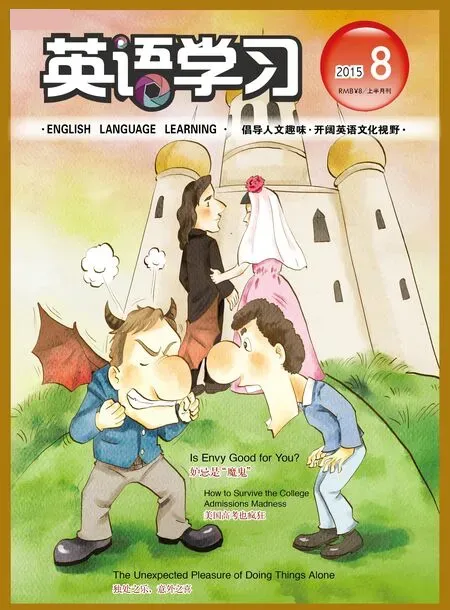Farewell, Thou Child of My Right Hand, Loved Boy
By John M. Ridland
You died, and I, instead of tearing my hair,
wailing, rending1. rend: 撕裂,扯破。my garments, went to school and taught my class in verse, as if I were
still as I’d been for your six years, calm, cool,
though passionate about each line, each word,
foot, enjambed2. enjambed: 诗歌跨行句(enjambment)的。line end, changing tone of diction,syntactical consturction, seen and heard—
and every minute of that hour a fiction.
I should have stayed at home, gone AWOL3. AWOL: 短语absent without leave的缩写,即擅离职守。, skipped my classes, held your mother in my arms,
dampened her matchless hair; I should have flipped4. flip: 用手指轻弹或迅速拉动某物。the breakers5. breaker: [电工]circuit breaker的简称,即断路开关,断路器。setting off the fire alarms,
since we were singed by fire, a con flagration6. singe: 把……烧焦,烤焦; con flagration:(毁灭性的)大火灾。burning as hot as if an incendiary7. incendiary: 易燃的。
bomb had directly hit our warden station—8. warden:(商会)监管人员,譬如伦敦金融城同业总工会(Livery Companies of the City of London)便是由一位总监管人(Prime Warden,又称Master)、数位头衔各异的监管人(the Upper,Middle, Lower, or Renter Wardens)以及理事会(Court of Assistants)共同进行管理;station: 分局,站,所。the house in rubble, the future left to bury.
What sort of father takes grief as I did?
One who’s been taught in childhood, Bear your cross,9. bear one’s cross: 源自《圣经》中耶稣基督背负十字架的典故,指忍受苦难。and further trained in youth to screw the lid10. screw: 拧紧,旋紧;lid: 盖子。此处诗人将失去亲人的痛楚比作从容器中不断涌出的流体,他试图旋紧瓶盖,控制自己的悲哀情感。
down tight on any wild, unspeakable loss.
Forgive me, child of my right hand, and joy,as Jonson wrote from the same point of view—not that you’re there in any sense, loved boy,but it helps me to talk unheard to you.
你去世了,但我,并没有扯拽头发、
呜咽哀号、撕裂衣衫,而是去学校
给我的班级教授诗歌,好似我还像
六岁的你所熟知的那般镇静、沉着,
尽管我沉醉于每句诗行、逐个字词、
音步韵脚、连跨行末、措辞变调与
句法构造,以及诗中一切所见所闻——
每一分钟课堂时光都如虚构般入胜。
我本应留在家中,擅离职守,错过
我的教学课程,将你母亲揽入怀中,
用泪水沾湿她绝美的发丝;我本应
急拉电源开关并随即触响火警警报,
因为我们早就已被烈火燎焦,此番
巨焰炽炽,灼热炎炎,好似有一枚
燃烧榴弹径直击中我们的监管会所——
房屋崩裂为碎石,未来只待被埋葬。
如我这般悼挽到底算是怎样的父亲?
从幼年起便被教育着要“忍辱负重”,
青年时代又继续练习着要紧闭心门,
不论身陷何种无以言表的疯狂丧失。
请原谅我,右掌上予我欢愉的孩儿,
正如琼森从同样视角写下悼子挽文——
并非因你已身处异界,挚爱的男孩,
只是我更愿在无人旁听时对你倾诉。

